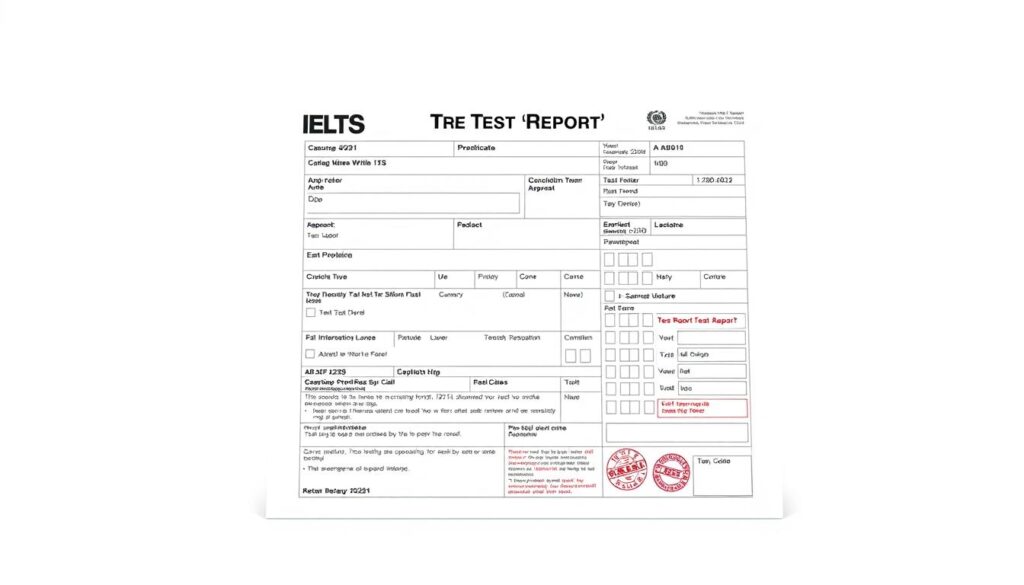Are you planning to study, work, or immigrate abroad? The IELTS test is a crucial step in making your international dreams a reality. Recognized by over 3,000 institutions in the United States alone, a strong IELTS score can open doors to top universities and career opportunities worldwide.
In this guide, we’ll share expert tips and strategies to help you prepare effectively for the IELTS test. Whether you’re aiming for a high score or simply need to meet the requirements, we’ve got you covered. Plus, we’ll clarify common questions, like how long your IELTS score remains valid and whether you can retake the test if needed.
Designed for students, professionals, and immigrants alike, this guide offers a friendly and informative approach to your IELTS journey. From understanding the test structure to improving your score, we’ll walk you through everything you need to know. So, let’s dive in and explore how to achieve your desired IELTS score with confidence!
Key Takeaways
- IELTS scores are valid for two years in most countries, with exceptions like Australia for skilled migration (three years).
- Expert preparation strategies can significantly improve your IELTS score.
- Understanding the test structure and timing is crucial for success.
- Retaking the test is possible if your score expires or doesn’t meet requirements.
- IELTS is accepted by over 3,000 institutions in the United States for education and immigration purposes.
Understanding IELTS: Exam Structure & Overview
Are you ready to unlock global opportunities through English proficiency? The IELTS (International English Language Testing System) is a standardized test designed to assess your English skills for academic, professional, or immigration purposes. Recognized by over 3,000 institutions in the United States alone, a strong IELTS score can open doors to top universities and career opportunities worldwide.
What is IELTS?
IELTS is a globally recognized exam that evaluates four essential English skills: reading, writing, listening, and speaking. It is a crucial step for non-native English speakers aiming to study, work, or immigrate to English-speaking countries. The test is jointly owned by the British Council, IDP: IELTS Australia, and Cambridge Assessment English.
IELTS Modules Explained
The IELTS exam offers two modules tailored to different goals:
- Academic Module: Designed for individuals seeking higher education or professional registration in an English-speaking environment.
- General Training Module: Ideal for those planning to work, immigrate, or pursue secondary education in countries like Australia, Canada, New Zealand, the United Kingdom, and the United States.
The exam timing is structured to assess each skill effectively. The Listening section lasts 40 minutes, Reading takes 60 minutes, Writing is 60 minutes, and Speaking is an 11-14 minute interview. Each section is designed to evaluate your English proficiency comprehensively.
Understanding the IELTS structure is key to achieving your desired score. Whether you’re applying to a university or planning to immigrate, this exam is a critical step in your journey. Prepare well, and you’ll be on your way to achieving your international goals!
IELTS Preparation Strategies for Success
Preparing for the IELTS exam is a journey that requires dedication and the right strategies. Whether you’re a student aiming for academic success or a professional seeking visa opportunities, a well-structured approach can make all the difference.
Effective Study Habits
Developing consistent study habits is key to improving your English skills. Start by creating a study schedule that allows you to practice regularly, even if it’s just for a few minutes each day. Since IELTS scores are valid for two years, you have ample time to prepare without feeling rushed.
Incorporate self-assessment into your routine. Use online resources to track your progress and identify areas where you need improvement. For instance, focus on listening and speaking if you find these sections challenging. Regular practice will not only build your confidence but also enhance your test-taking skills.
Practice Test Resources
Mock tests are an essential part of your preparation. They help you understand the exam format and manage your time effectively. Consider enrolling in online coaching programs designed specifically for IELTS preparation. These programs often provide unlimited practice tests and personalized feedback.
- Take full-length mock tests to simulate real exam conditions.
- Review your results to identify patterns in your mistakes.
- Focus on weak areas to improve your overall score.
By combining structured practice with realistic mock exams, you can reduce test anxiety and perform better on the actual day. Remember, consistent effort is the key to achieving your desired IELTS score and securing your visa or university admission.
Does IELTS expire? What You Need to Know
Planning to study or work abroad? Understanding the validity of your IELTS score is crucial for your applications.
Validity Period Details
IELTS scores are valid for two years from the test date. This policy ensures that your English proficiency is current and relevant for academic or professional purposes.
- Most countries, including the USA, accept scores for two years.
- Australia extends validity to three years for skilled migration.
- Canadian immigration requires scores to be within the last two years.
Maintaining a current score is vital for university admissions and visa applications. If your score is nearing expiration, consider retaking the test to ensure uninterrupted eligibility.
Understanding the expiration rules helps you plan effectively. Always check the specific requirements of your target institutions or immigration authorities to stay compliant.
Decoding Your IELTS Score & Test Report Form (TRF)
Understanding your IELTS score is a crucial step toward achieving your academic and professional goals. The Test Report Form (TRF) is more than just a document—it’s a key to unlocking opportunities worldwide. Whether you’re applying for university admission or planning your immigration journey, knowing how to interpret your scores is essential.
Interpreting Your Band Score
Your IELTS score is presented on a scale from 0 to 9, with 9 indicating expertise. The TRF displays an overall band score and individual scores for each section: Listening, Reading, Writing, and Speaking. Each band reflects your proficiency in specific skills, helping you identify strengths and areas for improvement.
| Band Score | Proficiency Level | Description |
|---|---|---|
| 9 | Expert | Fluent with a sophisticated command of English. |
| 7-8 | Advanced | Strong understanding with occasional minor errors. |
| 5-6 | Competent | Effective communication with some inaccuracies. |
| Below 5 | Basic | Limited proficiency, struggling in complex situations. |
Keeping Your TRF Safe
Your TRF is a vital document required by universities and immigration authorities. Here’s how to manage it effectively:
- Store it securely: Keep your TRF in a safe place to avoid loss or damage.
- Verify online: Use the IELTS Online TRF Verification service to ensure authenticity.
- Request additional copies: You can ask for up to five free electronic copies to send to institutions.
By understanding your IELTS score and managing your TRF wisely, you can confidently take the next steps toward your goals. Whether it’s applying to a university or pursuing a visa, your TRF is your passport to new opportunities.
Tracking IELTS Validity Across Countries
Understanding how IELTS scores are recognized globally is essential for your international plans. Different countries enforce IELTS validity in unique ways, affecting your applications for education, work, or immigration.
USA & Canada Requirements
In the United States, most institutions accept IELTS scores for two years, aligning with academic and immigration requirements. Similarly, Canada follows a two-year validity period for student visas and permanent residency applications. Both countries emphasize current English proficiency for admission processes.
UK, Australia, and Beyond
The UK adheres to a two-year validity period for work and study visas. Australia extends this to three years for General Skilled Migration applications. Other countries like New Zealand and Germany maintain a two-year standard. This variation highlights the importance of checking specific guidelines for each region.
| Country | Validity Period | Purpose |
|---|---|---|
| USA | 2 years | Academic & Immigration |
| Canada | 2 years | Student Visas & PR |
| UK | 2 years | Work & Study Visas |
| Australia | 3 years | General Skilled Migration |
For more detailed guidance on IELTS preparation and validity, visit our resource page.
Retaking IELTS: When and Why to Consider a Reattempt
Considering a retake of the IELTS exam? You’re not alone. Many candidates find that retaking the test can significantly improve their scores and open up more opportunities. Whether you’re aiming for a higher band score or need to meet specific requirements, retaking the IELTS can be a strategic move in your preparation journey.
When Should You Reapply?
There are several scenarios where retaking the IELTS makes sense. If your current score is nearing expiration, retaking the test ensures your results remain valid for upcoming applications. Additionally, if you feel your initial score doesn’t reflect your true English proficiency, a retake can help demonstrate your skills more accurately.
- Improved Preparation: Use the time between tests to focus on weak areas and refine your study habits. Consistent practice can lead to better performance.
- Upcoming Deadlines: If you have university or visa applications pending, retaking the test can provide a more competitive score.
- Expert Guidance: Seek feedback from instructors or mentors to identify areas for improvement and develop a targeted study plan.
Retaking the IELTS is a personal decision that depends on your goals and current situation. By assessing your performance critically and preparing thoroughly, you can make the most of your reattempt and achieve the score you need.
IELTS vs. Other English Proficiency Tests Validity
When exploring English proficiency tests, it’s important to understand how IELTS compares to other popular exams like TOEFL, Duolingo, and PTE in terms of validity periods and recognition.
Comparing Validity Periods
IELTS, TOEFL, and Duolingo all have a standard validity period of two years. However, PTE also follows this two-year rule. This uniformity makes it easier for test-takers to plan their applications.
Key Differences in Recognition
While most institutions accept multiple tests, some prefer IELTS due to its global recognition and face-to-face speaking test. For instance, many universities in the UK and Australia favor IELTS for immigration and academic purposes.
- Advantage of IELTS: Widely accepted by over 3,000 U.S. institutions and preferred for immigration in Australia and Canada.
- Reason for Preference: IELTS is often seen as more reliable because of its in-person speaking section.
| Test | Validity Period | Recognition |
|---|---|---|
| IELTS | 2 years | Preferred in UK, Australia, and Canada |
| TOEFL | 2 years | Widely accepted in the U.S. |
| Duolingo | 2 years | Growing acceptance, especially in the U.S. |
| PTE | 2 years | Popular in Australia and New Zealand |
Each test has its strengths, but IELTS stands out for its recognition and in-person speaking assessment, making it a top choice for many applicants.
Applying IELTS for University, Visa, and Immigration
Securing your international goals often hinges on effectively using your IELTS score. Whether you’re aiming for university admission or navigating visa and immigration processes, understanding how to apply your IELTS results is crucial. This section provides practical advice on leveraging your scores to meet the requirements of educational institutions and immigration authorities.
University Admission Tips
- Meet Specific Requirements: Each university has unique IELTS score requirements. Research your target institutions to ensure your scores align with their expectations.
- Submit Scores Timely: Most universities require IELTS scores as part of the admission process. Plan your test dates well in advance of application deadlines to ensure your scores are valid and readily available.
Visa Application Essentials
- Understand Visa Requirements: Different countries and visa types have specific IELTS score requirements. For example, skilled migration visas often demand higher scores than student visas.
- Use Your TRF Effectively: Your Test Report Form (TRF) is a critical document for visa applications. Ensure it’s submitted alongside your application and within the required validity period.
By strategically using your IELTS scores, you can streamline your applications and increase your chances of success. Whether it’s for academic pursuits or immigration, understanding how to apply your IELTS results effectively is key to achieving your goals.
Expert Tips for Maximizing Your IELTS Preparation
Maximizing your IELTS preparation requires more than just studying; it’s about using the right strategies and resources. With the right approach, you can significantly improve your scores and achieve your goals.
Utilizing Online Coaching and Resources
Online coaching and digital platforms have revolutionized IELTS preparation. These resources offer structured study plans, personalized feedback, and interactive tools that cater to your specific needs. For instance, many platforms provide IELTS practice tests that simulate real exam conditions, helping you assess your progress accurately.
- Interactive Practice Tests: Engage with IELTS practice tests designed to mirror the actual exam format. These tests help you identify weak areas and improve time management skills.
- Writing Modules: Use interactive writing tools to refine your essay and task responses. These modules often include sample answers and expert feedback, perfect for IELTS writing improvement.
Incorporate full-length practice tests into your routine to gauge your readiness. These tests not only build confidence but also familiarize you with the exam’s timing and structure. Additionally, focus on IELTS general training materials if you’re aiming for immigration or work visas.
By leveraging these online resources and maintaining consistent practice, you can optimize your study routine and achieve a higher IELTS score. Remember, effective preparation is the key to unlocking your international opportunities.
Understanding IELTS Components: Listening, Reading, Writing, Speaking
Mastering the IELTS exam begins with understanding its four core components: Listening, Reading, Writing, and Speaking. Each section evaluates different English skills, and a strong performance in all areas is essential for achieving a high band score.
Overview of Each Skill
The Listening section lasts 40 minutes and tests your ability to understand spoken English in various accents and contexts. The Reading section, also 60 minutes, assesses how well you comprehend written texts. The Writing section, lasting 60 minutes, evaluates your ability to write clearly and effectively. Finally, the Speaking section is an 11-14 minute interview that tests your fluency and coherence in English.
Test Timings and Strategies
Time management is crucial. For Listening and Reading, allocate time to review answers. In Writing, spend 20 minutes on Task 1 and 40 minutes on Task 2. For Speaking, practice answering questions concisely. Understanding each component helps you focus your study plan effectively.
| Section | Timing | Key Skills | Strategies |
|---|---|---|---|
| Listening | 40 minutes | Understanding accents, main ideas, details | Practice with various accents, use headings to guide answers |
| Reading | 60 minutes | Comprehending texts, skimming, scanning | Underline key phrases, manage time per question |
| Writing | 60 minutes | Writing essays, reports, letters | Plan essays, use examples, check grammar |
| Speaking | 11-14 minutes | Fluency, vocabulary, grammar | Practice topics, expand answers, focus on pronunciation |
By understanding each component and employing the right strategies, you can improve your performance and achieve your desired band score. Tailor your study plan to focus on your weakest areas and practice consistently for the best results.
How to Verify and Share Your IELTS Scores
After taking the IELTS exam, it’s important to ensure your scores are verified and shared securely with institutions and visa offices. This section guides you through the process of verifying your Test Report Form (TRF) online and sending your scores to universities and immigration agencies.
Online TRF Verification Process
Verifying your TRF online is straightforward. Follow these steps:
- Visit the official IELTS website or your test center’s portal.
- Log in using your candidate number and passport or ID number.
- Navigate to the results section to view and download your TRF.
Ensure your internet connection is secure to protect your personal information.
Sending Scores to Institutions
Sharing your scores with institutions can be done electronically or by mail. Here’s how:
- Electronic Delivery: Use the IELTS Results Service to send your scores directly to universities and immigration agencies. This method is fast and reliable.
- Postal Mail: You can request up to five free paper copies of your TRF to be sent to institutions. Additional copies may incur a fee.
| Delivery Method | Typical Turnaround Time | Cost |
|---|---|---|
| Electronic | 1-2 business days | Free (up to 5 institutions) |
| Postal Mail | 7-10 business days | Free (up to 5 copies) |
Always double-check the recipient details before sending your scores to avoid delays. Maintaining an updated and verified TRF is crucial for smooth application processes.
Conclusion
Mastering the IELTS exam is a gateway to new opportunities, empowering you to achieve your academic and professional goals. Throughout this guide, we’ve explored the exam structure, effective preparation strategies, and how to interpret your scores. Understanding the validity of your results and staying updated on requirements is crucial for university admissions, visa applications, and immigration processes.
By using the strategies and resources provided, you can maximize your performance and confidently pursue your international aspirations. Remember, a well-prepared approach not only enhances your scores but also streamlines your applications for education, work, and immigration purposes. With the right tools and mindset, your IELTS journey can lead to remarkable opportunities worldwide.
FAQ
How long does the IELTS test take?
The IELTS test typically takes 2 hours and 45 minutes. This includes time for Listening, Reading, Writing, and Speaking modules.
What is the IELTS scoring system?
IELTS uses a band score system from 0 to 9, with half-point increments. Your overall score is the average of your scores in Listening, Reading, Writing, and Speaking.
What is the difference between IELTS Academic and General Training?
IELTS Academic is for university admissions, while General Training is for work or migration. Both have the same Listening and Speaking tests but different Reading and Writing tasks.
How can I prepare effectively for the IELTS test?
Use official practice materials, take mock tests, and focus on improving your English skills. Joining a preparation course or using online resources can also help.
What is a good IELTS score for university admission?
Most universities require a band score of 6.0 or higher, but this varies by institution and program. Check your target university’s requirements.
Can I retake the IELTS test if I’m not satisfied with my score?
Yes, you can retake the test as many times as needed. There’s no limit, but consider preparing more before reattempting to improve your results.
How long is an IELTS Test Report Form (TRF) valid?
The TRF is valid for two years from the test date. After that, it may not be accepted for official purposes.
Can I use my IELTS score for visa applications?
Yes, IELTS is widely accepted for visa and immigration purposes in many countries, including the UK, Australia, and Canada.
How do I send my IELTS scores to universities?
You can request that your scores be sent directly to institutions when you register or through your test center afterward.











